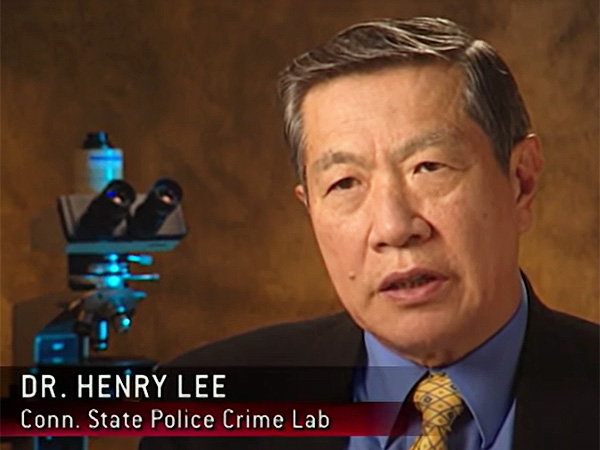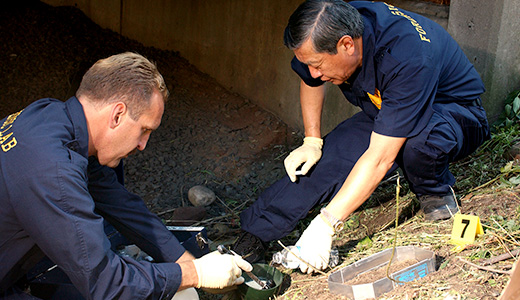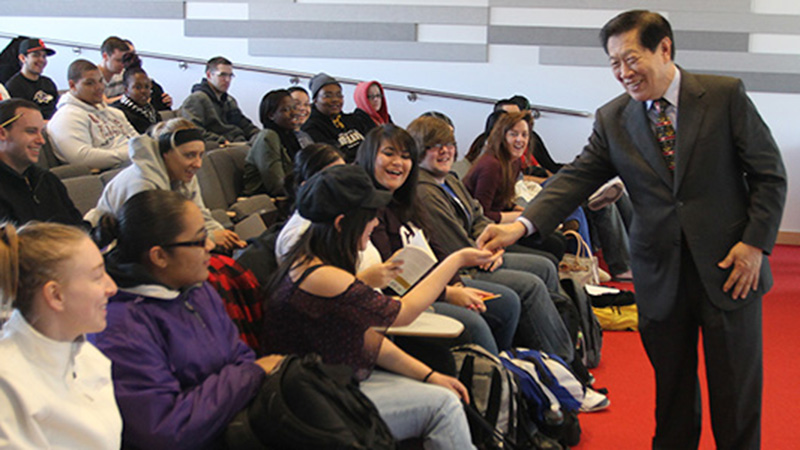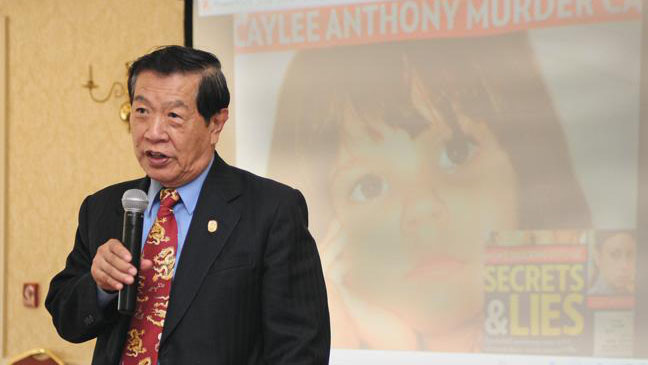Forensic Experts:
Dr. Henry C. Lee: Forensic Science Pioneer
Posted: April 28, 2022
By: Megan Grant
Behind the scenes of some of the biggest criminal cases in the world is a name you might not know: Dr. Henry C. Lee. You may not recognize him, but you'll certainly recognize his work. Dr. Lee is one of the world's leading forensic scientists, having offered his expertise on more than 8,000 criminal cases across 46 countries. Whether or not people realize it, he's impacted many lives, at least in some capacity.
But who is Dr. Henry C. Lee, and what exactly has he contributed to the world?
The Legacy of Dr. Lee
Dr. Lee's career started early and impressively. At the age of 22, he assumed the rank of captain with the Taipei Police Department. He was the youngest to do so in Taiwan's history. This would set the stage for an infamous career. Lee has done more than influence the world of forensic science — he's moved mountains.
Having worked with 600 law enforcement agencies and testified in court more than 1,000 times, there's little doubt that Dr. Lee is one of the nation's (truly, the world's) foremost forensic scientists. He's worked on some of the most high-profile cases in the world. Cases you've undoubtedly heard of.
Dr. Lee's role was pivotal in the case of the murder of JonBenét Ramsey. He visited Colorado several times to work with authorities, go over evidence, and recreate the scene of the crime. The story of young JonBenét was one that broke hearts and gave chills across the world — and even today, a giant question mark hangs over the story. Dr. Lee appeared in a CBS documentary chronicling the reexamination of her murder, adamant that the poor handling of the crime scene early on was detrimental to solving the case.
There's another name you might remember in headlines that swept the nation (and a case on which Dr. Lee played a role): Chandra Ann Levy. Levy was an intern at the Federal Bureau of Prisons in Washington, D.C. She disappeared in May of 2001, and after her skeletal remains were recovered in May of 2002, she was presumed murdered.
Henry Lee was consulted in the kidnapping of Elizabeth Smart, who — at the age of 14 in June of 2002 — was taken from her home in Utah. And, Dr. Lee provided testimony that proved influential in the O.J. Simpson trial. He was a key witness in the double murder trial, his testimony supporting the defense team's argument that more than one attacker was involved in the murders of Nicole Brown Simpson and Ronald Goldman. Furthermore, Lee helped in examining the remains of Laci Peterson and her unborn child — yet another murder that continues to occupy the news.
And these cases only scratch the surface. Dr. Lee's profound knowledge of forensic science has spanned well beyond his own cases. He was featured on several episodes of Forensic Files between 1996 and 2003, in addition to Unsolved Mysteries. You can find him in a number of documentaries telling the stories of O.J., JonBenét, Caylee Anthony (whose mother, Casey Anthony, was charged with her murder but later acquitted), the JFK assassination, and some of the worst Hollywood murders. He played a role in the post-9/11 forensic investigation and helped solve the Helle Crafts woodchipper murder, which was the first murder conviction in the state of Connecticut without the victim's body. In a stroke of brilliance, he was able to essentially recreate and confirm how Crafts was murdered using a pig carcass as a surrogate.
Dr. Lee's brilliance has even translated to print. He's the author/co-author of 30 books and 400 publications. His work has earned him many awards, including the Medal of Justice from the Justice Foundation in 1996, a Lifetime Achievement Award from the Science and Engineer Association in 1998, the Distinguished Criminalist Award from the American Academy of Forensic Sciences, and the J. Donero Award from the International Association of Identification.
The Start of New Study
Earlier in his career, Dr. Lee was the chief criminalist for the State of Connecticut, in addition to the director of the Connecticut State Police Forensic Science Laboratory. Not willing to settle for servicing only criminal cases, Dr. Henry Lee set out to teach. In 1975, he joined the University of New Haven. It was there he launched the school's Forensic Sciences program, which eventually skyrocketed to become one of the premier programs in the nation. It was aptly named the Henry C. Lee College of Criminal Justice and Forensic Sciences in his honor.
The university later built the $14 million Henry C. Lee Institute of Forensic Science on campus, for the purpose of conducting forensic research and training law enforcement professionals from all over the world. Dr. Lee says, "The Institute is a catalyst enabling professionals in the field to work together. The world then becomes a small community engaged in fighting crime." At the institute, trainees work on solving cold cases, handling crime scenes, advanced technology, research, and crisis management.
This has all happened alongside Dr. Lee's teaching at more than a dozen universities, medical schools, and law schools. His textbooks on crime scene investigation, forensic science, and physical evidence have educated countless medical, legal, and forensic professionals around the world.
For Dr. Lee, fighting crime is more than a job, more than a career. It's been the focus of his life. To say he's raised the bar for forensic science would be a great understatement. He's changed the practice completely. Any person involved in the forensic sciences likely knows the name Henry Lee.
Find a typo or issue with the details of this article? Leave a comment below, or contact us!
Sources
- https://www.henryleeinstitute.com/about/dr-henry-lee/
- https://www.newhaven.edu/faculty-staff-profiles/henry-lee.php/
- https://www.nbcconnecticut.com/news/local/forensic-expert-dr-henry-c-lee-reacts-to-lapd-announcement-of-new-evidence-in-oj-simpson-double-murder-trial/138802/
- http://www.cnn.com/2003/LAW/08/11/peterson.exam/index.html
- https://www.imdb.com/name/nm1651133/
- https://www.newhaven.edu/faculty-staff-profiles/henry-lee.php/
- https://premierespeakers.com/henry-lee/bio
- https://www.henryleeinstitute.com/training-center/
- https://www.routledge.com/authors/i4977-henry-lee




